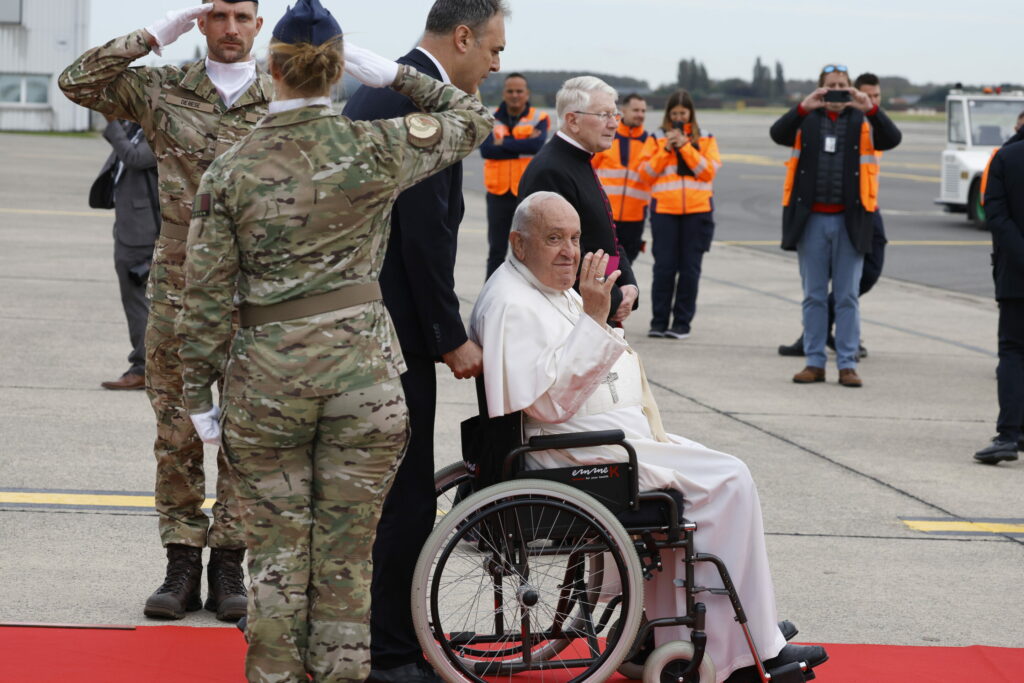Pope Francis departed Belgium on Sunday afternoon after a four day visit which was intended to mark the 600th anniversary of two of the country's Catholic universities, but at every turn was marked by questions of how the Catholic Church is handling clerical abuse scandals in Belgium and elsewhere.
Invited to Belgium by Catholic universities UC Louvain and KU Leuven, the Pope's visit comes almost exactly a year since the damning Flemish documentary 'Godvergeten' revealed the extent of sexual abuse in the Belgian Church.
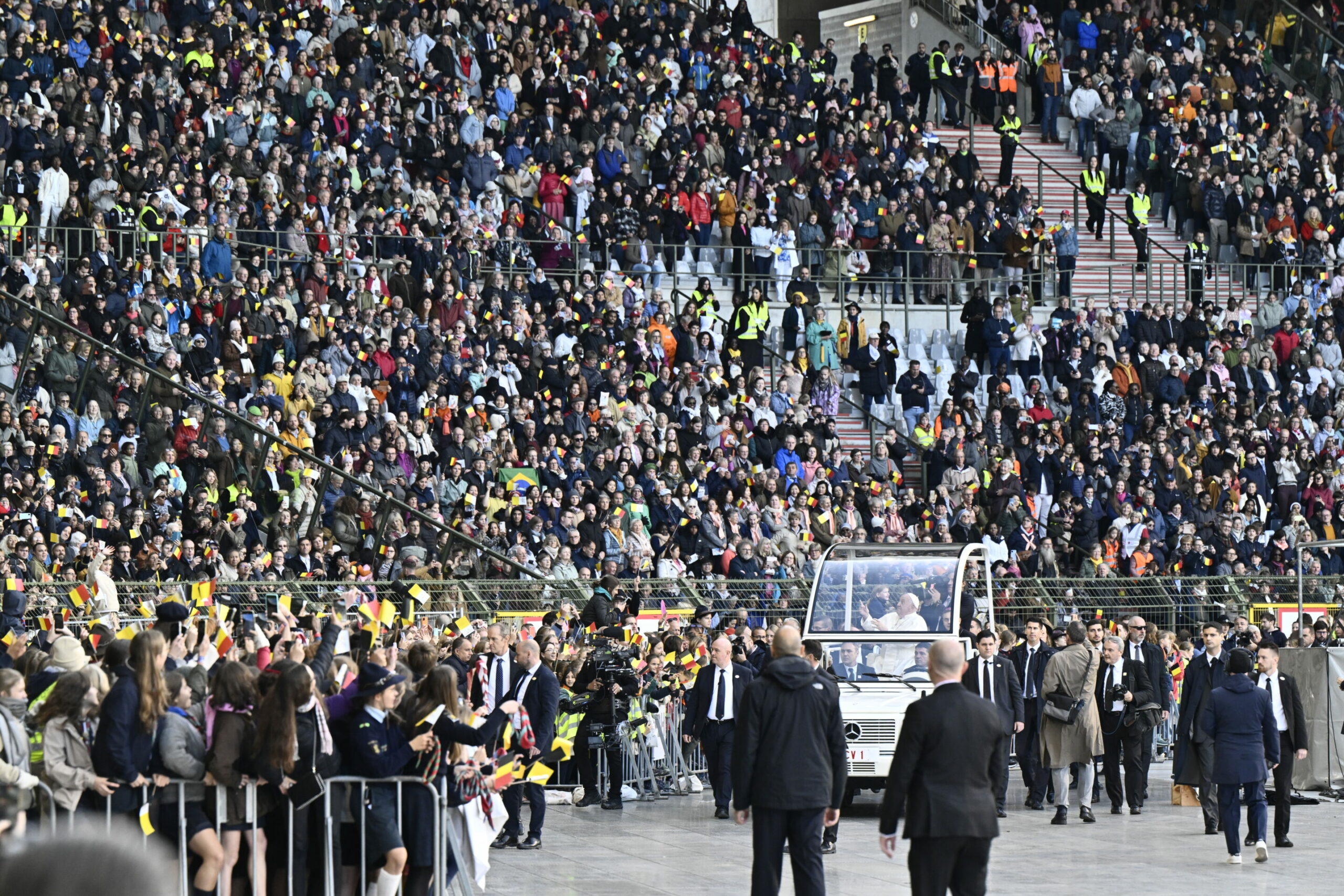
Pope Francis arrives for a holy Mass at the King Baudouin Stadium in Brussels on Sunday 29 September 2024. Credit: Belga
Leading Mass in a packed Roi Baudouin Stadium on Sunday morning, Pope Francis emphasised the need for transparency and courage in exposing abusers and asked bishops to "not cover up abuses" and to "condemn those who commit them".
Some criticised the statements made by the Pontiff, which are similar to those delivered during visits to other countries where clerical abuse has been uncovered.
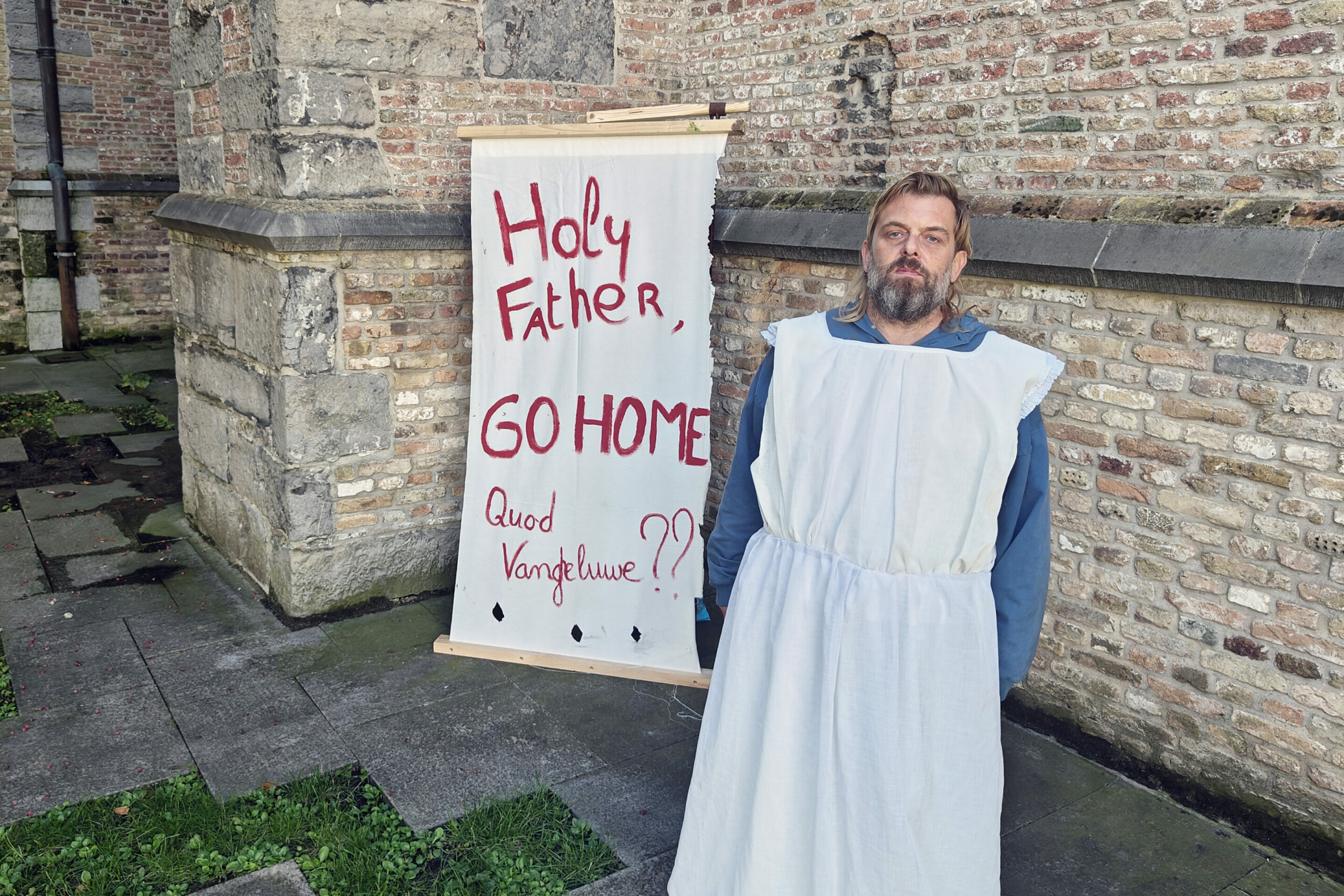
Bart Deschacht, activist against abuse in the church, holds a protest action at the Sint-Salvatorskathedraal cathedral in Brugge, on the occasion of the papal visit to Belgium on Saturday 28 September 2024. Credit: Belga
Sexual abuse victim Bart Deschacht led a peaceful protest this weekend at Saint Saviour’s Cathedral in Bruges, demanding action from the Church rather than just words.
"Apologies are empty words to me," he said. "I echo our Prime Minister's sentiment. I don't want words from the Church, but actions." Deschacht described a meeting between the Pope and a number of victims of Church sexual abuse during his visit to Belgium as a "charade".
Meanwhile, theologian Myriam Tonus praised the clear stance against sexual crimes but noted that church authorities still protect abusers. "So far, few priests identified as abusers have faced justice," she stated on RTBF after the Mass.
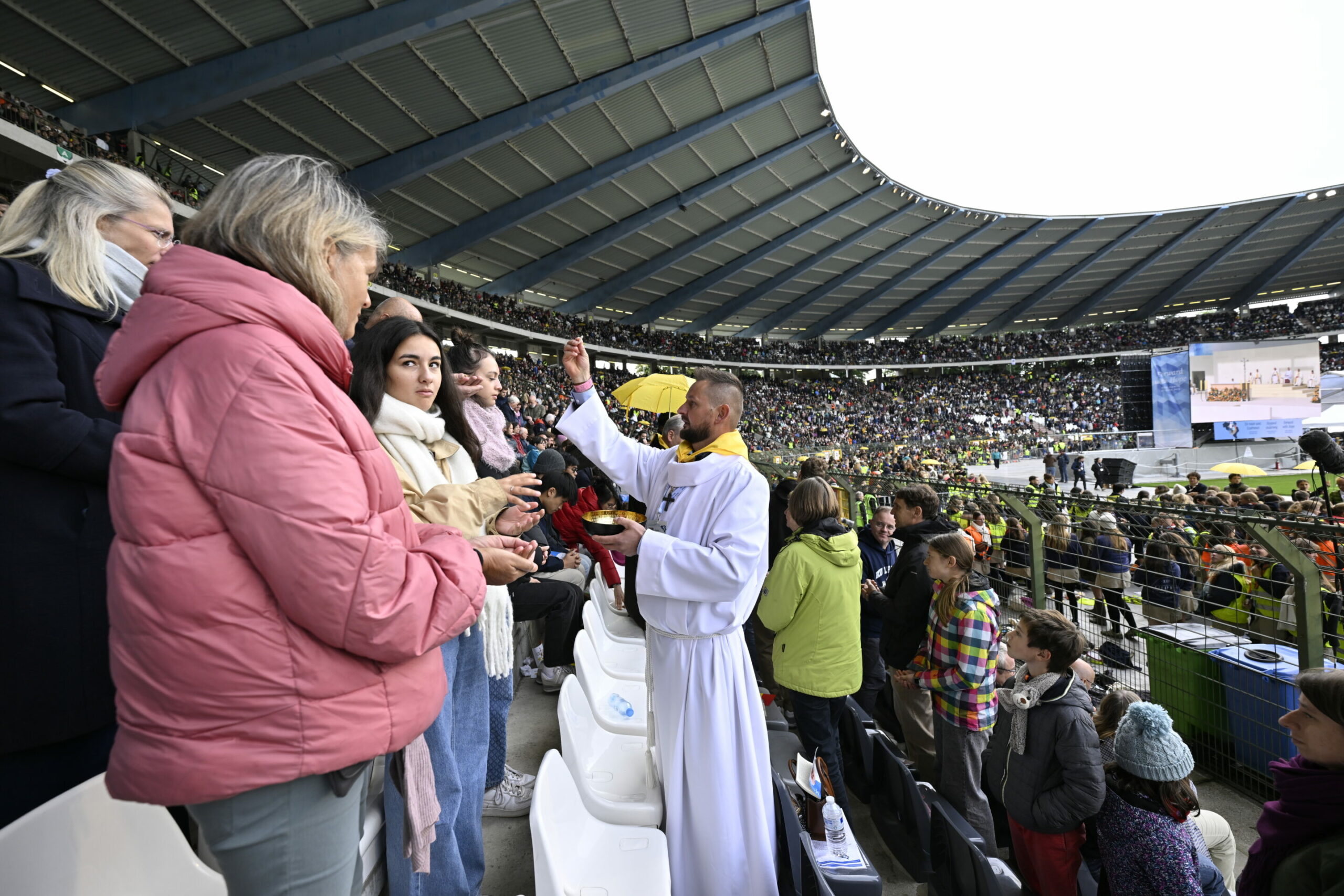
Worshippers receive communion during a holy Mass at the King Baudouin Stadium in Brussels on Sunday 29 September 2024. Credit: Belga
Spirits high at Sunday Mass
A crowd of around 37,500 people gathered at King Baudouin Stadium to attend the ceremony led by the Pope. While spirits were high, there was an awareness of the importance of the Pontiff addressing certain issues.
Kelly Deburchgraeve (29), from Leuven, told The Brussels Times that she came to Sunday's Mass as it is a "unique opportunity when a world leader comes to Belgium". Speaking before the ceremony began, she said she hoped the Pope would address sexual harassment within the Church but that it wouldn't overshadow other things.
"I think the way we act on sexual harassment within the church, we're very open about it, we talk about it, but it would be sad if they only talk about that. All the work that the Church has been doing, all the organisations that do volunteer work that are connected to the Church, I really hope he appreciates that," she said.
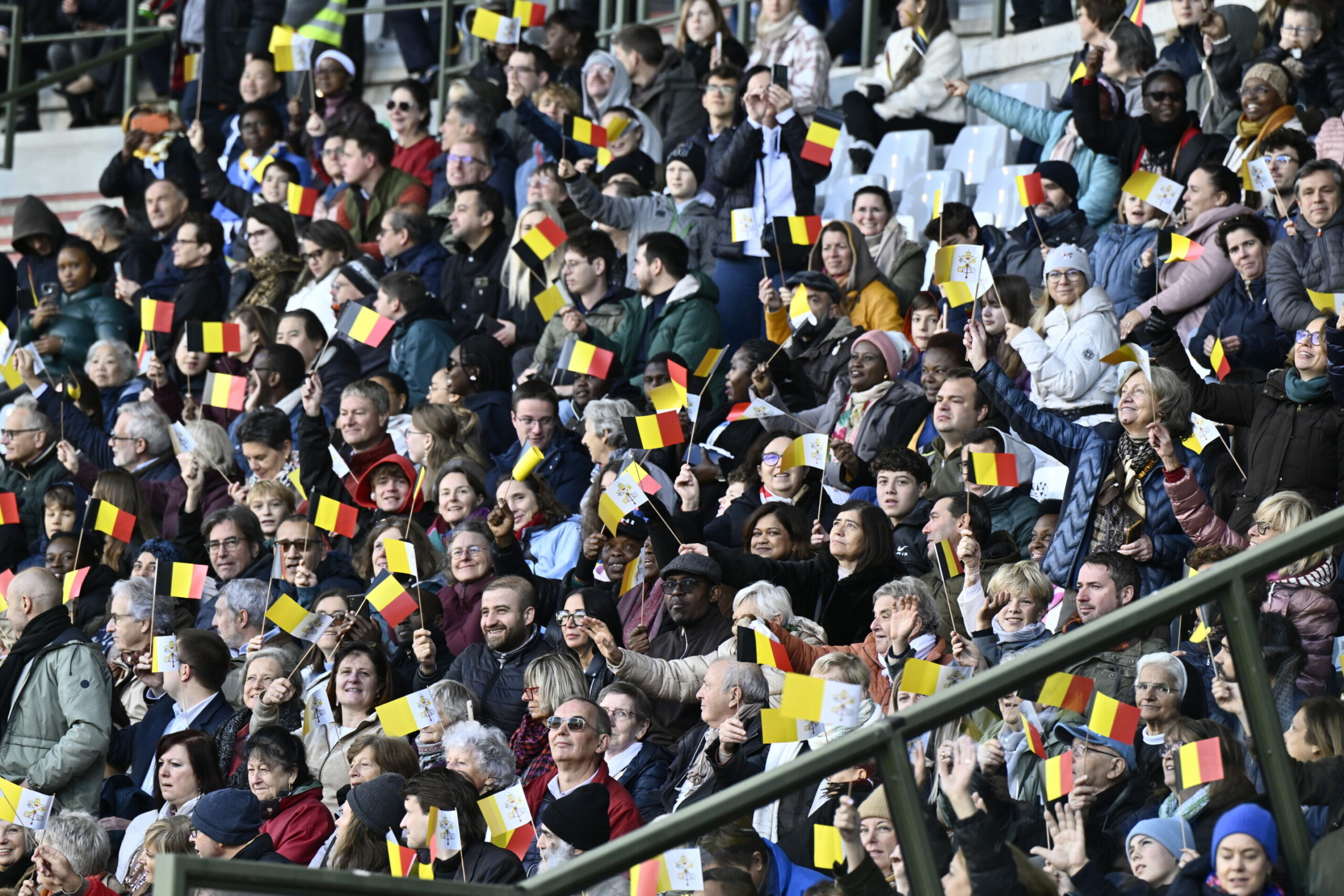
People eagerly await the start of a holy Mass at the King Baudouin Stadium in Brussels on Sunday 29 September 2024. Credit: Belga
One woman, aged 85, said she woke up at 05:00 on Sunday to go to her own church at 06:00 before coming to Roi Baudouin Stadium by 08:00 to get a good spot for her second Mass of the day.
"I'm tired because I'm 85, my back is killing me and I can't wait to get home. It was too long, but it was magnificent," she said, adding that she is a big fan of Pope Francis. "I've read his book, and I believe everything he says. He always says you have to ask for forgiveness, always ask for what you need, and help your neighbour because we're all brothers and sisters – that's the truth," she said.
Bruno Issom (42), from Brussels, said that he attended the Mass on Sunday to strengthen his own faith. "I'm already a practising Catholic. I've come to strengthen my faith a little and listen to the head of the Church," he said, adding that it is a "difficult moment" for the Church, particularly in Belgium.
The Mass also attracted non-Catholics, like Olga Georgousi (27), living in Brussels but from Greece. "I came out of curiosity to see the Mass and to also experience him in real life," she said, adding that she hoped he would touch on issues like homelessness in Brussels, the situation in Palestine, or speak to young people in general.
"I feel like this is culturally a significant event for the city and he's one of the Popes that I really admire, even as a non-Catholic, because of his views on loads of important matters in the world," she said.
Among other talking points during the Mass, the Pope called for an immediate ceasefire in Lebanon, Gaza, the rest of Palestine, and Israel.
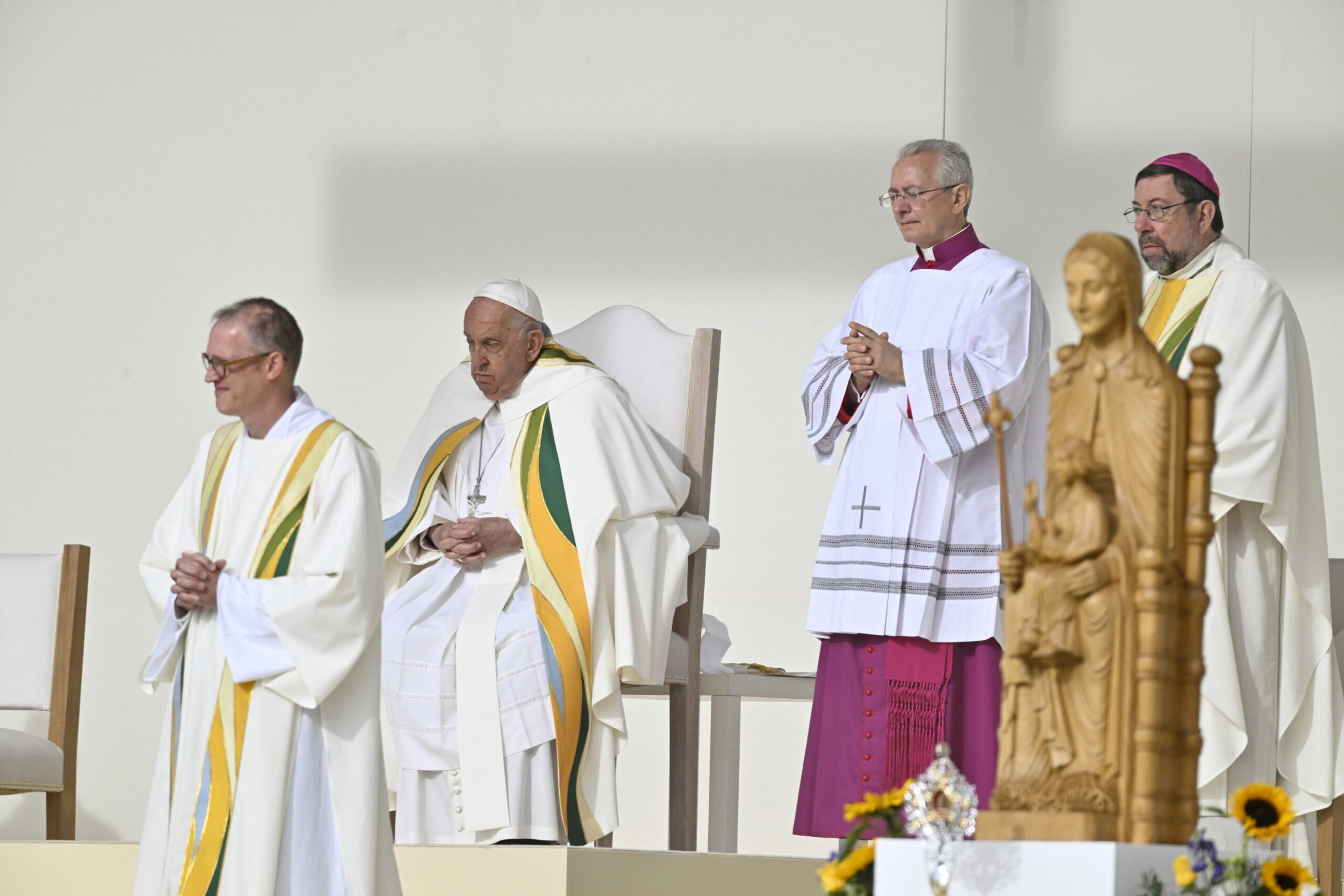
Pope Francis (C) leads a holy Mass at the King Baudouin Stadium in Brussels on Sunday 29 September 2024. Credit: Belga
Beatification of King Baudouin
Pope Francis also announced on Sunday that he would begin the beatification process for Belgium's fifth king (and the Brussels stadium's namesake), King Baudouin.
Beatification is the official recognition by the Catholic Church that someone has lived a holy life and is now in heaven. It is a preliminary step needed before a deceased person can be canonised as a saint.
"Upon my return to Rome, I will launch the beatification process for King Baudouin. May his example as a man of faith illuminate our leaders. I ask that the bishops of Belgium take up this cause and advance it," the Pope said.
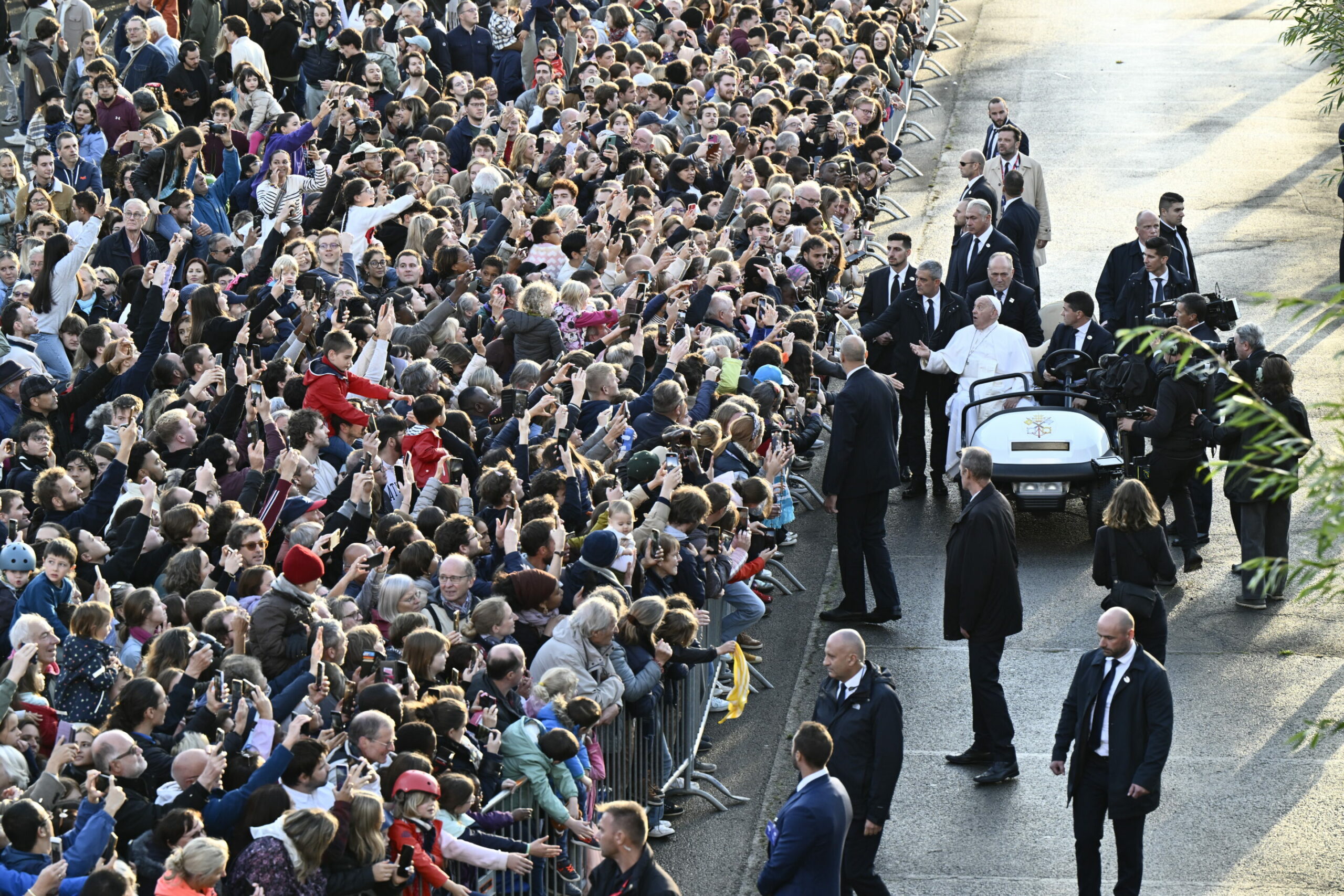
Pope Francis greets citizens at a papal visit to the 'Universite catholique de Louvain' university in Ottignies-Louvain-la-Neuve on Saturday 28 September 2024. Credit: Belga
The announcement was criticised by the Centre for Secular Action, given King Baudouin's opposition to abortion and the timing of the Pope's announcement. In 1990, King Baudouin (who was devoutly Catholic) refused to sign the bill that decriminalised abortion. His refusal to do so was unprecedented and required the Federal Government to declare Baudouin temporarily unable to reign.
Visiting King Baudouin's tomb on Saturday, Pope Francis sparked anger among civil organisations in Belgium when he spoke of Baudouin's "courage" in not signing a "murderous" abortion law.
The Centre for Secular Action said that the announcement about beautification of the former King was a particular "provocation" given the fact that Sunday was also International Day for Safe Abortion.
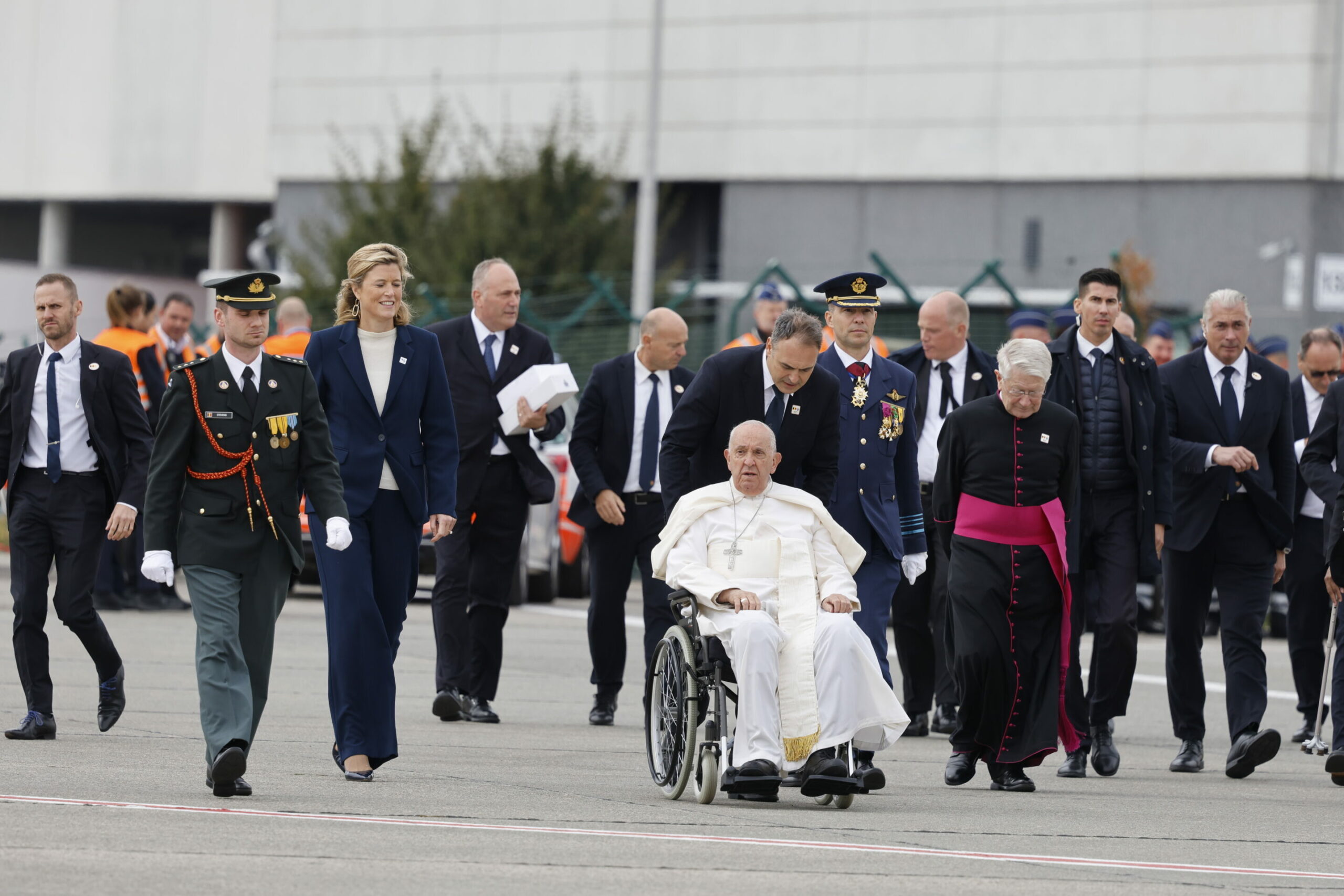
Pope Francis arrives for his departure home, from the military airport in Melsbroek, Steenokkerzeel on Sunday 29 September 2024. Credit: Belga
Pope Francis concluded his four-day visit to Belgium and flew back to Rome at 13:15 on Sunday, after a brief farewell ceremony at Melsbroek military airport.

